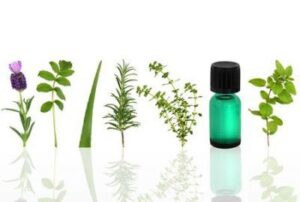ADHD, Attention Deficit Hyperactivity Disorder, is a condition that affects both children and adults. More often it is diagnosed in childhood but if the symptoms are more mild it may be overlooked until the child reaches adulthood. The symptoms, mild, moderate or severe, can have many different effects on the social development of the child.
ADHD social development can make childhood friendships very difficult. And because these relationships contribute to the immediate happiness of the child it is important to the long-term development of the child.
Researchers have found that children who have difficulty with their peer relationships at a young age are more at risk for anxiety disorders, behavioral and mood disorders and substance abuse as teens. Parents with children who have ADHD also report that their children are less likely to have close friends and are more likely to be picked on at school or has trouble getting along with other children.
Exactly how these behaviors interfere with peer relationships isn’t entirely understood. Psychologists theorize that those children with inattentive disorder may be perceived as shy and those who are hyperactive may be perceived as aggressive. Children who have ADHD and any other disorder face even greater challenges with their relationships with others.
But not everyone with ADHD has difficulty getting along with others. For those who do have difficulty in developing close peer relationships there are several things that parents can do to help their children through this challenge. The earlier these symptoms are recognized and interventions are started the better the chances that they will be successful.
Beginning any help with the child means that the parents recognize the importance to the child of healthy peer relationships. They can be just as important as good grades in school since they help to determine the eventual social outcome for the child.
Parents can keep up to date with the child’s teacher, school counselors and after-school leaders and maintain open lines of communication. This will help to recognize problems early in their development and a core team of people who can work together to provide support to the child as they meet these challenges.
Help your child to become involved in activities with their peers. These activities can be sports related or other group activities in which the child has some talent. These activities could be after school activities such as drama club, choir, or the school journal club.
Schools often have peer programs which pair older children and teens to provide support in the school environment. You may want to discuss this possibility with the child’s school counselor.
Parents can also maintain open lines of communication with their child so the child feels they have a safe place to communicate their disappointments and discouragement.
Parents should also be encouraged to help the child process through their social environment so that they can learn what errors may have been made in a social situation and how the behavior may be changed to correct the outcome. This can help the child to learn the cause and effect of their behavior on others.
After a social situation the parent and child can sit down to discuss both the errors and successes in the situation. They can identify what led to the error or success and figure out who was hurt by the error. Then together they can decide how to correct the mistake and together develop an alternative plan so the error doesn’t happen again.
Focus Formula is a natural, safe and proven herbal remedy, clinically formulated to effectively treat symptoms of ADHD without the side effects of psychiatric drugs such as Ritalin, Concerta and Adderall. Focus Formula treats the symptoms of ADHD naturally to reduce hyperactivity and restlessness; calm, soothe and reduce mood swings; improve concentration, memory and attention span; improve alertness and mental focus; calm over-active minds; reduce impulsiveness and aggression.
Focus Formula is formulated for children and adults with ADHD. Adults with ADD (no hyperactivity) should use Native Remedies Focus ADDult, while children with ADD (no hyperactivity) should use BrightSpark for ADD. Formulated by a clinical psychologist, Focus Formula is pharmaceutically manufactured to the highest standards.
Related Articles
- Free Natural Health Ebook: How External Influences Affect ADD/ADHD
- Free Natural Health Ebook: Making the Connection: How ADHD Affects the Family
- Free Natural Health Ebook: Hope on the Horizon: New Views on ADD/ADHD
- Free Natural Health Ebook: Dangers and Interactions of ADHD Medications
- Social Bad Habits
- Free Natural Health Ebook: Natural Help for ADHD in Adults
- ADHD Natural Remedies: Finding the Best Herbs for Hyperactivity
- Free Natural Health Ebook: Natural Help for ADHD
- ADHD and diet
- What is it like to have adult ADHD? Signs, Symptoms & Treatment
- What is ADHD?
- Statistics of attention deficit disorder cases
- Kinesiology and ADHD
- Diagnosis and treatment of ADHD
- Connors rating scales for attention deficit disorder
- ADHD Students in the Classroom
- ADHD medication and brain development
- ADHD disorder in children
- Adhd diagnosis and its treatment
- ADHD and neurotransmitters
- Free Natural Health Ebook: ADHD – Meeting Halfway… Communicating and Connecting
- Are there ADDvantages to ADD/ADHD?
- The Effects of Diet on ADHD
- BrightSpark for Hyperactivity in Children
- ADD Stimulant Medications: Are They the Best ADD Treatments?
- Your Active Child: Is It Just Normal High Energy or Something More?

